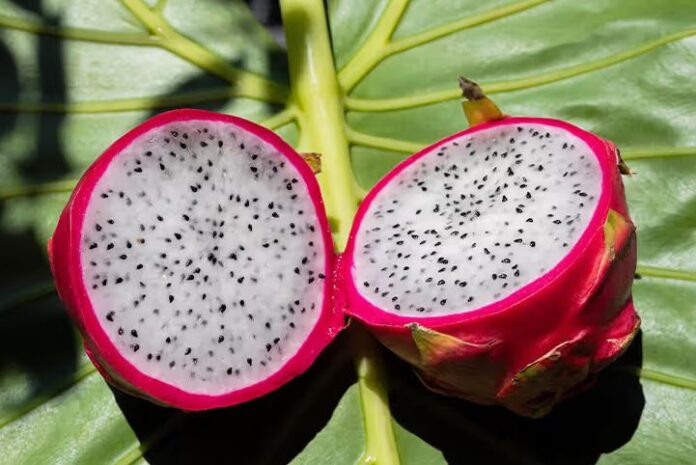Progressive farmers are advocating for the cultivation of dragon fruit in Pakistan’s Gadap area, emphasizing its potential to make the country a significant exporter. They are urging the government to allocate up to one acre of land to impoverished farmers, highlighting the region’s favorable climate conditions that could lead to substantial foreign exchange earnings.
These farmers propose several incentives for needy farmers, such as providing free land up to one acre, installing small solar systems, and borewell facilities. They argue that this initiative could address unemployment issues arising from layoffs in Karachi’s industrial zones, which struggle due to high energy costs and ineffective government policies.
The barren lands spanning thousands of acres in Gadap are seen as ideal for promoting dragon fruit farming. Dragon fruit is renowned globally for its health benefits and distinct sweet taste, commanding high prices. Vietnam and Thailand currently dominate global exports due to their conducive year-round weather conditions.
The coastal regions of Sindh and Balochistan, including areas from Thatta through Karachi to Hub, Gadani, and other parts of Balochistan, are identified as particularly suitable for dragon fruit cultivation. The climate’s temperature range of 10 to 40 degrees Celsius provides optimal conditions, ensuring the plants grow quickly without extremes of heat or cold.
Regarding environmental concerns such as global warming, farmers note that this year’s fruit season started late by about six weeks due to intense heat linked to climate change. Typically, the plants begin flowering in May, with fruits ripe for harvest after 45 days. Each plant yields three cycles of fruit per season, from May through October-November.
Captain Rizwan Rehman, owner of Delicious Dragon Fruit Farm and Nursery, a pioneer in High Density Dragon Farming in Pakistan, underscores the fruit’s rapid growth, popularity, and health benefits. Previously selling for Rs3,000 per kilo wholesale, prices have now adjusted to Rs1,500 per kilo. A single rooted plant, which costs Rs500, can yield at least 20 cuttings/rooted plants annually.
Rehman adds, “I’ve cultivated over 80 varieties, including jam red, Morocco red, royal red, red ruby, Philippine purple, Vietnam red, Vietnam white, and the latest ‘dark star’ variety this season. These varieties boast sugar levels ranging from 16 to 19.5 brix, making them as sweet as mangoes. I continue to research and introduce new varieties like red velvet, Taiwan jumbo, and Israeli yellow, focusing on enhancing sweetness levels as per local preferences.”




